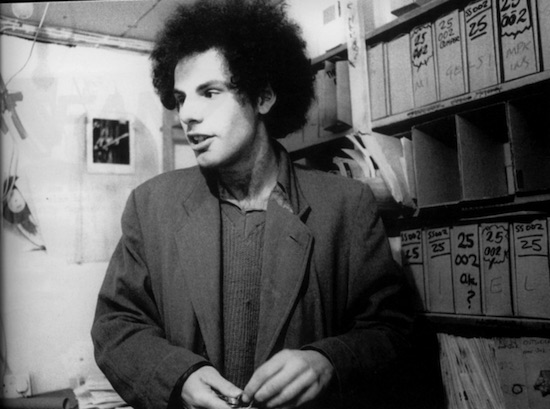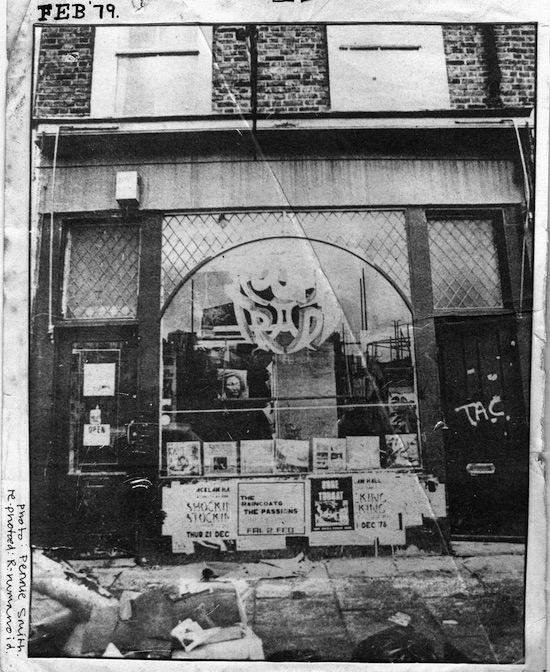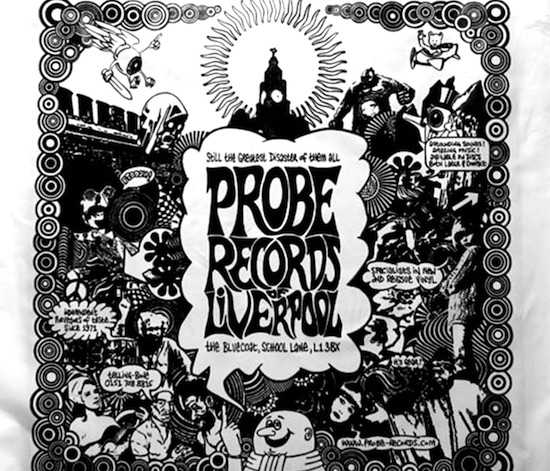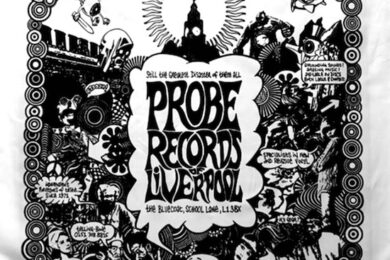It was the worst of times, it was the best of times: as 1983 dawned, Geoff Travis had lost his beloved Rough Trade record shop but, one afternoon at Rough Trade Distribution, a 19-year-old Manchester musician pressed a demo tape on him. Travis listened and agreed that, yes, his struggling record label would release a 45 by The Smiths. This signing would not only enrich Rough Trade Records’ fortunes and take indie rock into the mainstream, it would galvanise the network of independent record shops that Travis and Richard Scott had built into Rough Trade’s distribution network.
“Distribution was really important,” says Travis. “As word got out that we had stock, shops outside of London got in contact and this became the network that became The Cartel.”
The Cartel initially took shape organically: Red Rhino Records (York), Backs (Norwich), Nine Mile (Leamington Spa), Probe (Liverpool), Revolver (Bristol), Rough Trade (London) and the independent record label Fast Forward (Edinburgh).
The Cartel’s core shops all made a strong impact in their home cities, none more so than Probe Records. Founded in Liverpool in 1971 by Geoff Davies (with the help of soul DJ Roger Eagle), Probe served as the leading independent record shop of the north west of England. When located next to Eric’s nightclub in the late 1970s, venue and shop served as a nexus for Liverpool’s punk scene.
Punk fitted Probe Records perfectly. This Liverpool institution had been championing the raw and the marginal across the 1970s and, although much smaller than the city’s Virgin shop, it conveyed a transgressive energy that attracted the best and the brightest. Among those who would work behind the Probe counter were three youths who went on to find fame and fortune fronting The Teardrop Explodes, Frankie Goes To Hollywood and Dead Or Alive. While Julian Cope, being an obsessive record collector, surely made for the perfect record store clerk, Pete Burns must have been terrifying, his famously waspish tongue lashing customers if he disliked their music choices (or clothes or haircuts).
Burns, who would serve in full make-up, black contact lenses and whatever outfit took his fancy, was a sight to be seen, and only the foolish or savage attempted to confront him. Instead, many found getting ‘shaded’ by Burns something of a spectator sport, his pout and repartee both being Scouse classics. “I’m not lettin’ yer waste yer money on that shite,” he announced to one customer trying to buy a Half Japanese LP, while telling another “Put that back and get something decent” when they presented him with a Japan 45. Requests for Kiss or Dire Straits LPs would be greeted with silence. A brave lad asked for a Julian Cope album and watched as Burns curled his lip then said, “He’s a prick but he’s our prick. Go ‘ead.”

Geoff Travis
Burns’ behaviour was encouraged by Davies, who already had a reputation for sneering at customers (Cope recalls Davies refusing to sell a youth a Rush LP), yet Burns’ wild self-belief and acerbic delivery won him admirers. BBC radio producer Graham Robertson has fond memories of Burns’ turn at Probe: “Probe records really was a lifeline for music fans in early ‘80s Liverpool. Some kids were scared to go up to the counter when Pete was serving as he was acerbic and scathing but, overall, he was really funny. I personally relished going up to pay as it was always entertaining. My mates would often give me their records to pay for and I would place our selections on the counter and attempt to catch his eye – he was usually permanently immersed in an animated conversation and would often serve you without breaking from it! On one occasion, I got full attention: he came over, cast his usual nonchalant eye at my attire and then on what I had placed on the counter – a copy of Easter Everywhere by the 13th Floor Elevators – he didn’t make a comment but had a look of ‘Alright yer little shit’ on his face before disappearing in the back to fetch the vinyl, handing it over with a wry smile upon return. When I got home I went eagerly to play my new purchase only to find 12 Gold Bars by Status Quo in the sleeve … Twenty years later I got Pete in as a guest on a radio show I was producing and told him this story. He said, ‘Yeah, I was shite. Geoff only employed me for the glamour!’
“Once I was walking towards Probe Records when the door burst open and a huge skinhead who was often around the shop making trouble came flying out backwards closely followed by Pete Burns in what can only be described as an eighteenth-century shepherd’s smock, an upside-down straw top hat with his dreads cascading out of the top, full make-up and massive heeled boots. He shot down the steps sideways like a crab and, before the skinhead could get up, lifted his leg up and, fast as a snake, pierced him with the stiletto of his boot in the centre of the chest! That skinhead was truly massive and was a real nuisance, we were all slightly scared of him, but I will never forget his shriek of pain – like something from a slaughterhouse! At the time this happened, I was going to the same very rough boy’s school Pete had gone to – locals called it ‘Chegger Road’ – and to see a huge, malevolent force dispatched with speed and precision by a lad from Chegger in a dress gave me a new definition of strength and confidence.”
Robertson chuckles then says: “I always remember two American girls who seemed to be eternally camped at the bottom of the steps of Probe, surrounded by empty cider cans and hammered. A dark-haired one who was the most vocal and her mate with a red Mohican who was always too smashed to stand up straight or even speak. They were banned from the shop but would harangue anyone entering – including my 12-year-old self! Years later I was flicking through a biography of Courtney Love and there was a photo of her with long dark hair around the time she moved to Liverpool!”

Following Rough Trade’s example, Davies set up the label Probe Plus Records in 1981, issuing what he called “music to drive you to drink”. Releases included such Peel faves as Half Man Half Biscuit and The Mel-O-Tones. Yet Davies found handling Cartel distribution overwhelming – trying to get payment for records distributed, especially to market stalls, causing all kinds of problems – and so eventually he sold the shop on. Probe Records continues trading in the 2010s. It has a new location, no Pete Burns types behind the counter, and lots of classic rock and Third Man Records releases. Along with the most recent Half Man Half Biscuit CD.
This exert is from Garth Cartwright’s new book, Going For A Song: A Chronicle Of The UK Record Shop (Flood Gallery Press)
EDITOR’S NOTE: Probe Records was originally run by both Geoff & Annie Davies. When they divorced Geoff got the label and Annie the shop, where she still works to this day…



